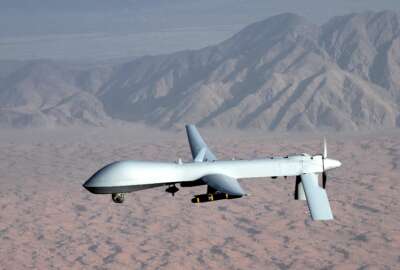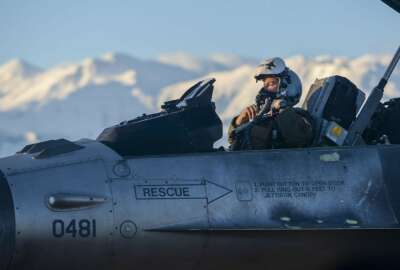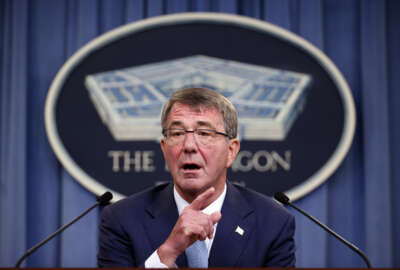
DoD wants Trump to change Reserve training options
The Defense Department hopes the next administration will create more flexible training models for reservists in order to retain those in aviation and cyber realms.
The Defense Department will encourage President-elect Donald Trump’s transition team to change the way some military reservists fulfill their mandatory weekend training.
In an attempt to recruit and retain reservists in areas the military sorely needs, the Pentagon has been exploring more flexible options for training instead of the traditional one weekend a month.
We’re looking “at a different way of engaging our reserve components,” said Assistant Defense Secretary for Manpower and Reserve Affairs Todd Weiler during a Dec. 8 Brooking Institution event in Washington. “We have had a system that has existed for decades — one weekend a month drill, two weeks in the summer — anyone that’s been in the reserve component knows that it’s not just that.”
DoD is considering alternate ways to train like working 15 hours a week, doing two weeks on duty and two weeks off duty or other models that are being used by many allied countries, Weiler said.
“This gives the ability to meet the needs of the commercial community and at the same time meet the needs of the department and provide that balance for the service member and family. … I think by getting out of the box and being a little more creative in how we use our forces and how we structure for future missions will have a huge impact,” Weiler said.
Those training models would be used for areas like aviation, cyber or medical where the military is hurting for people to fill the ranks.
The Obama administration will not have time to put into place the policies before leaving the White House in January. However, Weiler told Federal News Radio DoD plans on suggesting the changes to the Trump transition team.
Weiler said his office is working with the Defense Innovation Unit Experimental (DIUx) to come up with ways to make training more flexible, to hear reservists’ ideas and work with industry on ways reservists can balance training and work life.
DIUx has been using reserve forces to staff its Austin office. The campus is a collaborative work environment where reservists and tech company employees can work together.
“Once [the reservists] come on board, they’ll serve part-time — that is, in their regular reserve capacity — to help connect the broader DIUx enterprise with local and nearby companies that are developing promising technologies with potential customers across the Defense Department. They’ll work in close coordination with DIUx partners based in Silicon Valley and Boston. And if this model continues to succeed, we’ll look to replicate it in other innovation hubs around the country,” Defense Secretary Ash Carter said at the Austin campus roll out in September.
Shortages
Aviation positions in the military are currently understaffed and the military is worried about its ability to keep soldiers with cyber know-how on board.
The Air Force is at least 200 pilots short of what it believes it needs to meet its missions for remotely-piloted aircraft, but it’s only gotten there by “borrowing” pilots from manned aircraft communities. Those fighter aircraft, such as the F-16 and F-15, are at least 500 pilots short today, and the Air Force projects a 700-pilot shortage within the next few years.
Military pilots are choosing to go to private airlines instead of staying in the military.
A July 2016 RAND study states commercial airline pay has rebounded to peak salaries of $200,000 in the mid-1990s.
That’s not the only impetus though. Military pilots have training and hours required to qualify to fly for the major airlines without having to work for smaller regional airlines first.
“Because major airlines work on a seniority system, the best opportunity for salary growth in the major airlines occurs for military pilots leaving after their initial service obligation,” the RAND report states.
Another factor that is appealing to military pilots is the Federal Aviation Administration increased the mandatory retirement age for pilots from 60 to 65 in 2007, giving pilots longer to cash in on their talents.
The military is also concerned about its cyber retention. National Security Agency Director and U.S. Cyber Command chief Adm. Mike Rogers testified numerous times that while he does not have a shortage of cyber service members, the higher pay in the private sector is very appealing.
Copyright © 2025 Federal News Network. All rights reserved. This website is not intended for users located within the European Economic Area.
Scott Maucione is a defense reporter for Federal News Network and reports on human capital, workforce and the Defense Department at-large.
Follow @smaucioneWFED





